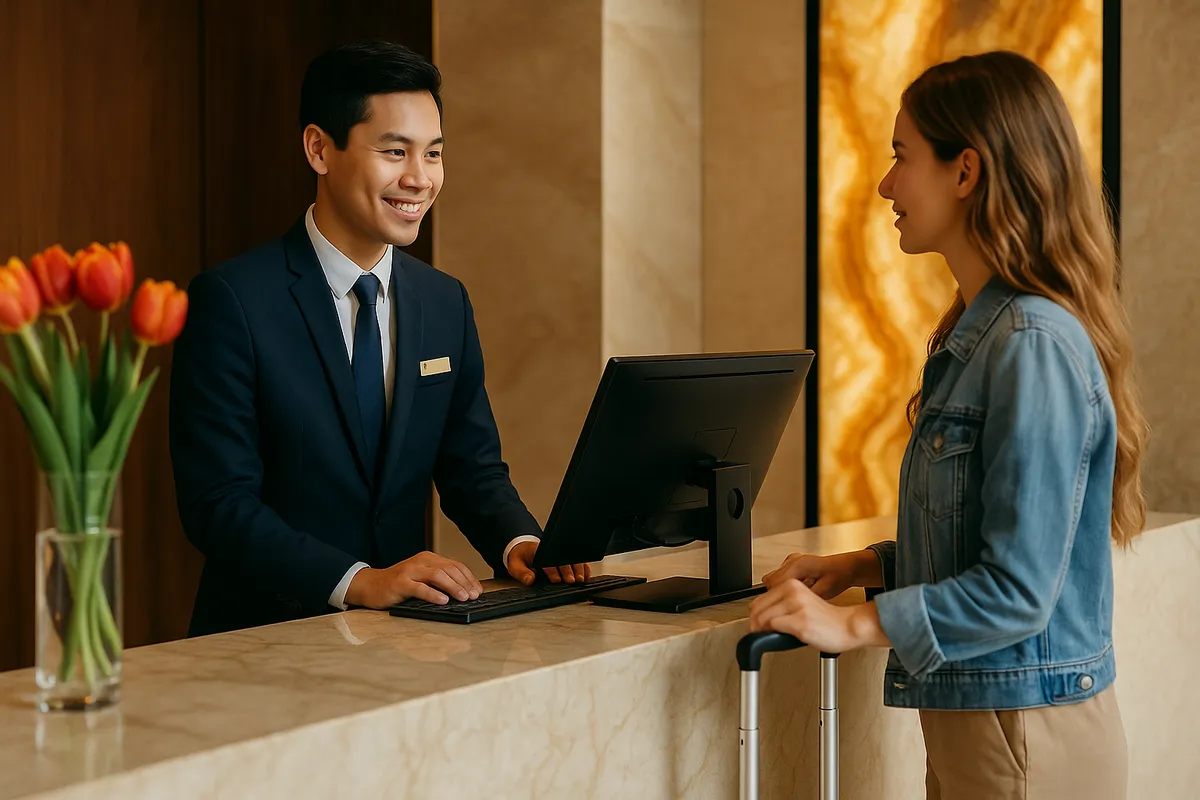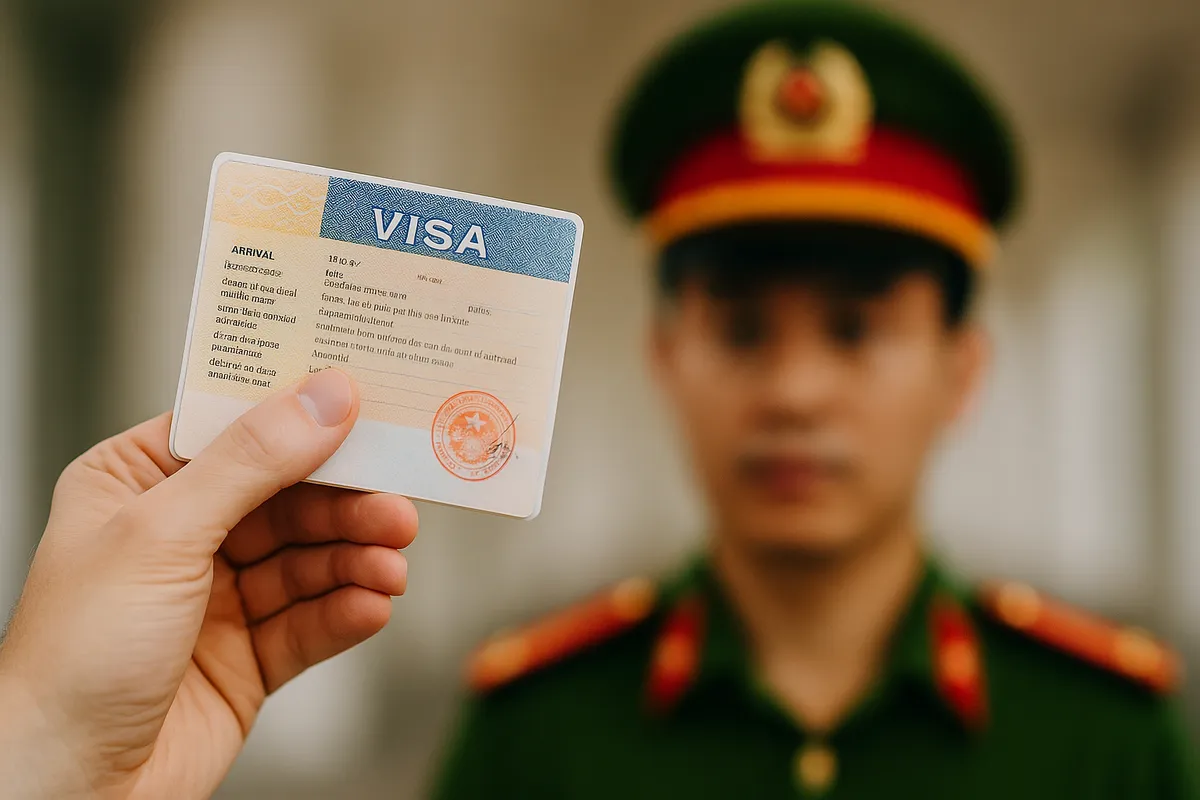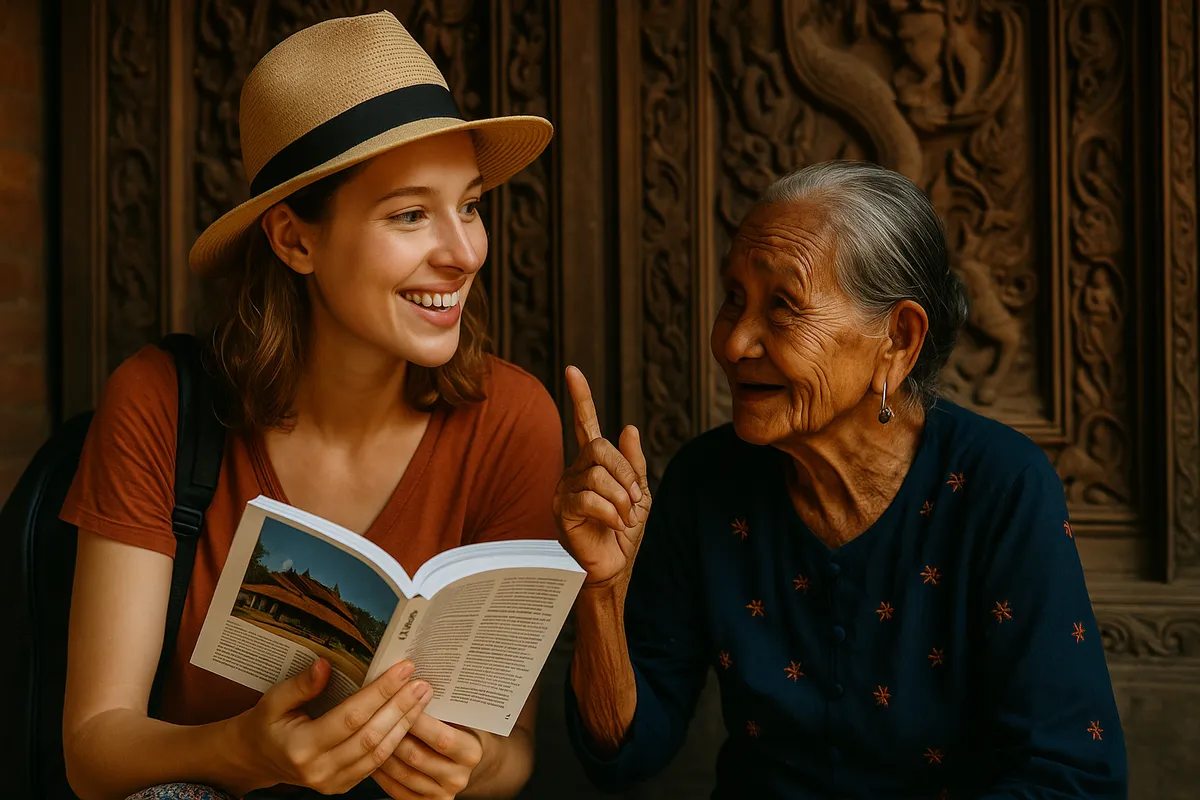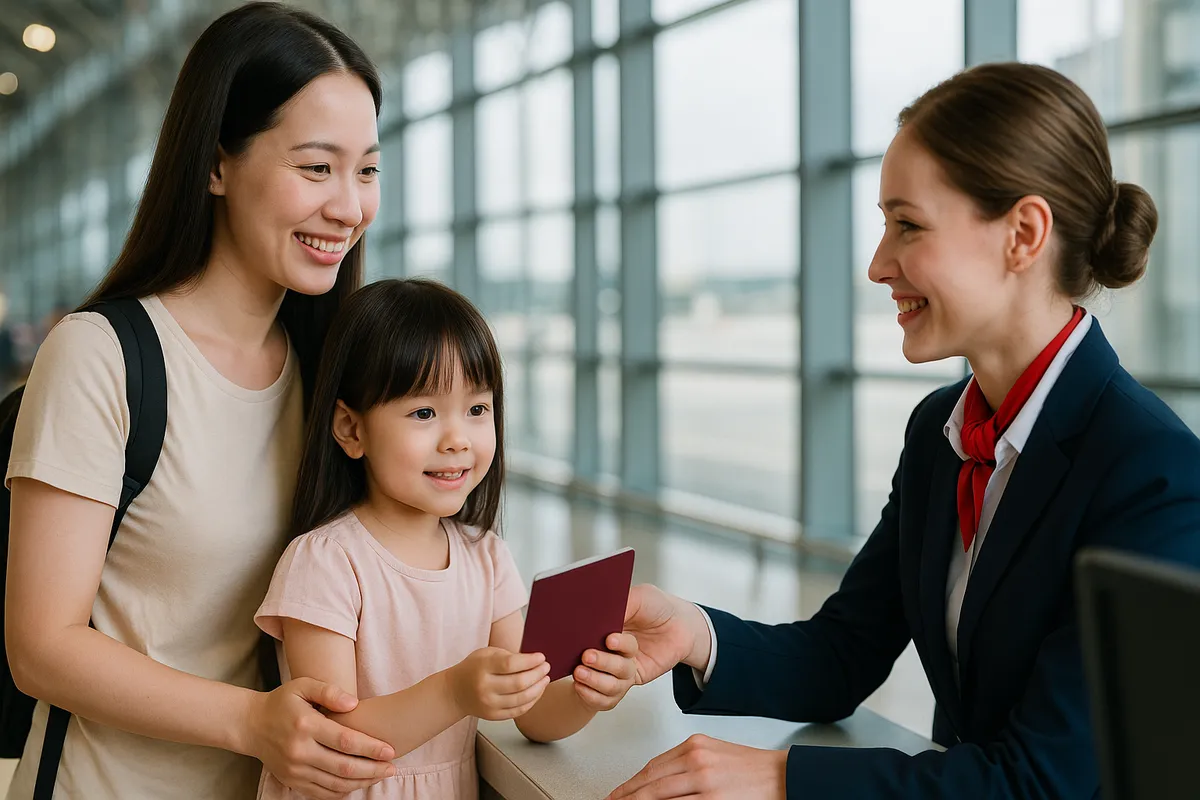Can I check in to the hotel before the scheduled time?
- Saturday, May 31, 2025, 08:03 (GMT+7)
Can I check in to the hotel before the scheduled time?
You’ve booked the perfect hotel, packed neatly, arrived right on schedule, only to find yourself sitting in the lobby for hours because it’s not yet check-in time. This situation is more common than you’d think, especially when your flight lands early, the bus drops you off before sunrise, or you simply want to start enjoying your vacation right away. So, can you check in before the official time? The answer isn’t just in the rules, it lies in experience, timing, attitude, and a few smart strategies that can make early check-in smoother, easier, and sometimes even free.
Most hotels in Vietnam use a standard check-in time of 2 PM. This schedule follows a common international practice: guests check out around noon, the housekeeping team takes one to two hours to clean, and the room is ready for new guests after that. But many travelers arrive from long journeys at 5 or 6 in the morning, exhausted and desperate for a shower and some rest. At moments like these, knowing your rights and how to navigate the situation gracefully can save both time and unnecessary expenses.
In reality, early check-in may be granted under certain conditions. If the hotel has clean, available rooms and no overlapping guest schedule, the front desk may allow early check-in, especially if it’s just an hour or two in advance. Some hotels are flexible and may even offer it for free if the room is ready before 10 AM. However, many establishments clearly state that arriving 2 to 6 hours early may incur a 30 to 50 percent charge of the room rate. Arriving before 6 AM usually requires booking the night before to guarantee a ready room.
Luxury hotels and high-end resorts tend to follow stricter procedures. They may offer lounge areas or spa access for early arrivals, but early check-in is almost impossible during peak seasons or for group bookings unless you’ve made arrangements in advance. There have been cases of travelers arriving during holiday periods to find every room fully booked, forced to wait three or four hours despite being visibly worn out after a night bus. And this happens often to guests who book through apps without reading the check-in policies carefully.
Here’s a practical trick that many overlook: contact the hotel in advance to inform them of your estimated arrival time. You can send a polite message or use the booking platform’s request field to mention “early check-in if possible.” This heads-up helps the hotel plan accordingly and increases your chances of early access, especially during low season or when previous guests have checked out early. Sometimes, a friendly tone at the counter can go a long way, even if there’s no formal arrangement.
Another option to consider is booking a daytime room or short-stay package, typically offered between 9 AM and 12 PM. Hotels near airports, bus stations, hospitals, or in central areas often provide this service. It’s a smart and affordable way to rest before continuing your journey. However, such options may not always be listed publicly, so it helps to ask directly or book through the hotel’s own communication channels.
Attitude plays a major role in whether you’ll be granted early access. Front desk staff are the gatekeepers, and their willingness to accommodate often depends on how you approach the situation. Travelers who stay calm, respectful, and friendly are far more likely to get assistance than those who pressure or complain. Many have shared that they received early check-in up to three or four hours ahead, completely free, just by being courteous.
If the room is still unavailable, ask whether you can leave your luggage and use the hotel’s common areas like restrooms, lounge, pool, or restaurant. Spending your wait time wisely, grabbing breakfast, freshening up, or just relaxing, can make the hours pass quickly and leave a positive impression. Some hotels even offer temporary shower access or suggest an upgrade at a reasonable rate if a better room is available.
For business travelers or those on tight schedules, the safest approach is to book an extra night from the day before. This guarantees a room will be available the moment you arrive. It’s especially useful when preparing for important meetings, interviews, or events where time and mental clarity matter. Spending a little extra to avoid a chaotic morning can make a huge difference.
It’s also worth noting that smaller accommodations like homestays or guesthouses may not have 24-hour staff. If you arrive early, the doors may be closed or the space might not be cleaned yet. This can lead to frustration or awkward delays. The more informal the accommodation, the more essential it is to give advance notice. Many young travelers have shared stories of showing up at homestays at 5 AM only to wait at a roadside café until 9 AM, just because they assumed they could check in early.
In international travel, early check-in is sometimes more flexible if booked through premium services or loyalty programs. In Vietnam, however, decisions are still mostly based on real-time availability and negotiation. That’s why having a backup plan is important: a nearby place to eat, somewhere to rest, a local sightseeing spot, or at least a secure location to store your bags.
To sum up, checking in before the official time depends on multiple factors: the hotel's policy, room availability, the timing of your arrival, and your interaction with the staff. By staying flexible, communicating in advance, and preparing alternatives, your travel experience can be more seamless and stress-free. While early check-in isn’t always guaranteed, there are always ways to make the wait more comfortable. That’s a kind of travel wisdom that few know from the start but everyone appreciates once learned.

 CHECKIN.VN
CHECKIN.VN








Share on